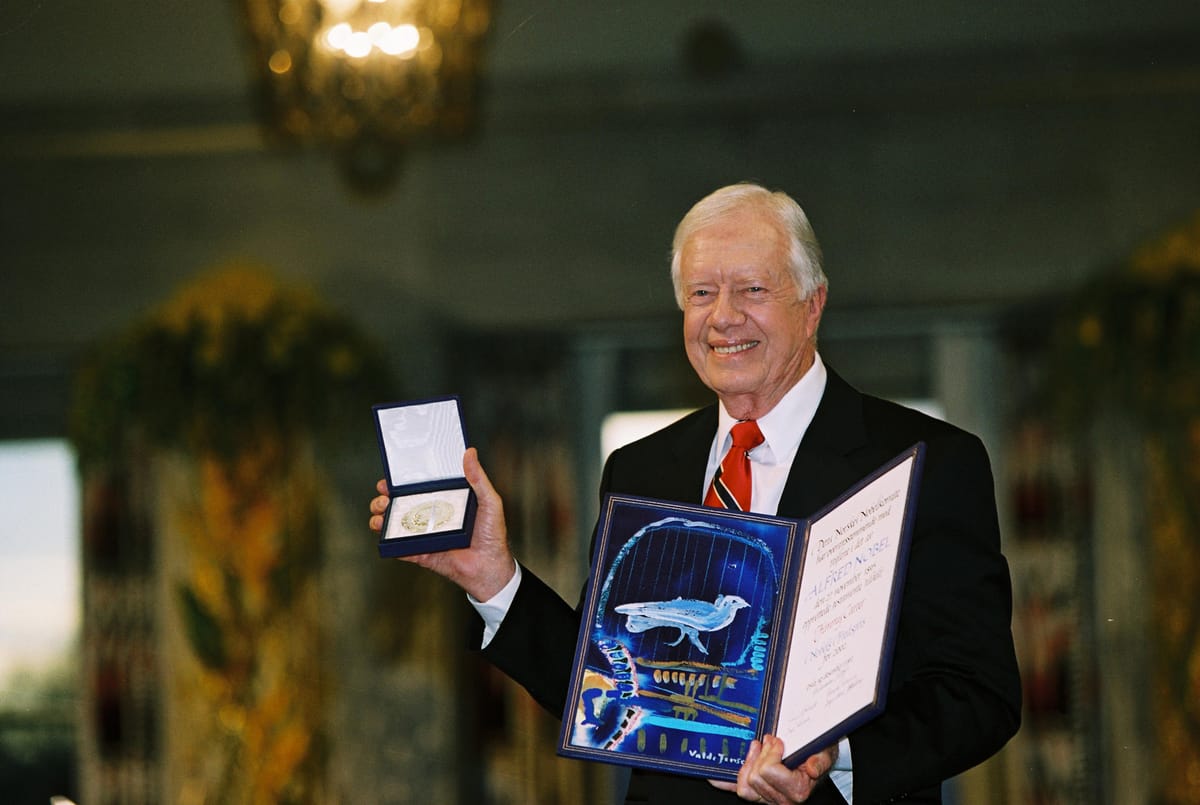Reflections: Jimmy Carter
In the decades following his one-term in the nation's highest office, Jimmy Carter redefined what the post-presidency could be.

Like millions of Americans, I followed the funeral service of former President Jimmy Carter. Watching the outpouring of emotion about his presidential and post-presidential years, I found myself reflecting on all he had done.
I first encountered Jimmy Carter when he ran for President in 1976. I was teaching at Yale University at the time, and he came there as a Chubb Fellow to talk with students and faculty members for several days. My first reaction was “Jimmy Who?” and like most of us, I didn’t think he had a chance of getting the Democratic nomination, to say nothing of winning the national election.
But he did. And while I applauded some of the things he did — the Camp David Accords that brought peace between Israel and Egypt most of all — I was not always personally happy with what was going on. I was teaching at the University of Oregon by then, paid so little I could not get a mortgage in the entire state. My father, living in Cincinnati, therefore took out a loan for me at Central Trust, which followed the prime. That was all well and good until the prime began to rise, reaching 20%. For the last years of the Carter presidency, I was even more strapped than before.
As a historian of the recent past, I found myself writing about Jimmy Carter and his presidency in a number of projects. In a book called “Modern America: The United States from World War II to the Present,” published in 1986, I was critical in evaluating his presidency. He managed to alienate Congress. He had notable achievements in the Middle East, of course, but helped bring on the Iran hostage crisis. I quoted journalist and author Hedrick Smith who wrote: “His greatest shortcoming so far has been his failure to rouse the nation with the lift of a driving dream.” I repeated that conclusion in both a high school and college textbook I co-authored.
In retrospect, I was unfair.
As I watched Carter in his extraordinary post-presidency, I had a greater appreciation for who he was and what he stood for. Indeed, following his work with Habitat for Humanity, I enlisted my students in several Miami University classes to work with me on Habitat projects in Oxford, Trenton and Cincinnati.
Observing the course of public policy in subsequent years, I found myself becoming much less critical of Carter’s approach, much more willing to give him the benefit of the doubt. He was ahead of the curve on energy policy and the need to conserve what we had. He made the absolute right decision in giving the Panama Canal back to Panama. And, of course, he was tireless as he worked with Menachem Begin and Anwar Sadat in reaching a Middle East peace treaty. I found myself wishing that I had been more generous in my earlier historical assessments.
And then I met Jimmy Carter.
I was at a historical conference in Atlanta. Because he was close by, Carter agreed to come and have a discussion with several hundred American historians about whatever we wanted to ask. It was an animated conversation that was really delightful to hear.
We were told that if we wanted to stand in line and purchase Carter’s latest book, he would sign it for us.
I had read a number of his works – he was very prolific – and got in line. When I came up to him, I said, “Mr. President, I read your essay about climbing Mt. Kilimanjaro.” His face broke out into a wide grin.
“I’ve climbed Kilimanjaro twice,” I said. “And I’ve written about it too.”
“Please send me your essay,” he said, and I did.
Then he went on to say that he had stopped at about 15,000 feet, Rosalynn at 16,000 feet. “I made it to the top,” I said, and he smiled again as he shook my hand.
A few weeks later, I got a personal thank-you note for having sent the essay to him, and congratulating me for having gotten to the top of the 19,330 foot peak. I treasured that response.
Jimmy Carter may not have been our best President, to be sure. But he did a good job, even better than a good job, and even more important, he was a decent and impressive human being.
Allan Winkler is a University Distinguished Professor of History Emeritus at Miami University, where he taught for three decades. He serves on the Board of Directors for the Oxford Free Press.




